Wild Swans - Interview
by John Clarkson
published: 19 / 8 / 2003
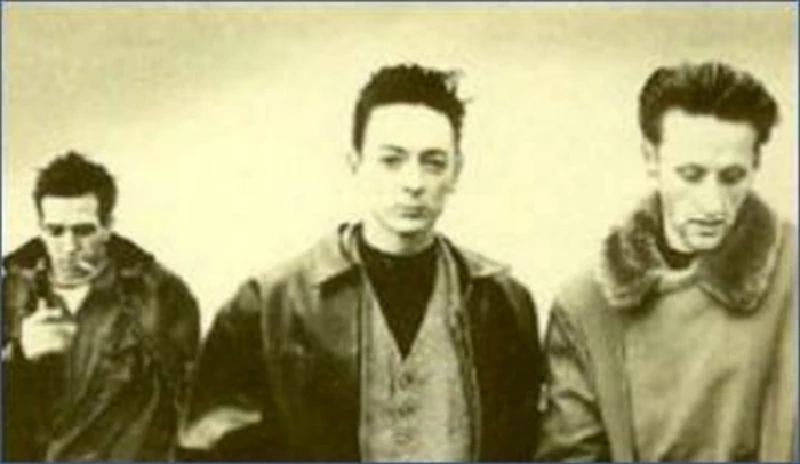
intro
Often seen to be one of the great lost British bands, seminal 1980's group the Wild Swans have just released a double retrospective CD, 'Incandescent'. Singer Paul Simpson and guitarist Jem Kelly talk to John Clarkson about the band's stormy history
The Wild Swans are the subject of romantic myth. First forming in 1980, they released a majestic debut single, 'Revolutionary Spirit', which was the last release of the KLF's Bill Drummond's influential Zoo label and its only 12". To much acclaim they played on the back of that a brief Christmas tour supporting Echo and the Bunnymen, but disintegrated shortly afterwards.They are often seen to be one of Britain's great lost bands. The Wild Swans, whose core members had all been key players on the legendary Liverpool Eric's club scene, first came together when their vocalist, Paul Simpson, left the Teardrop Explodes with whom he had been playing keyboards in late 1979. He formed The Wild Swans a few months later with keyboardist and pianist Ged Quinn, who had briefly replaced him in the Teardrop Explodes, and Jem (Jerry) Kelly, with whom he had spent a year previously rehearsing in an untitled and unrecorded local band. The band spent its first few months also rehearsing, before the late Pete De Freitas, the drummer with Echo and the Bunnymen, offered to fund and to produce a single. When the Wild Swans' original drummer, Justin Staveley, failed to make the recording session, De Freitas also played on it. The resulting 'Revolutionary Spirit', and its B Side 'God Forbid', won several Singles of the Week in the national music press. Simpson's luxuriant, visually literate vocals ; Quinn's grandiloquent keyboards, and Kelly's chiming guitarwork all won the Wild Swans instant acclaim. The group then went on to record two sessions for Radio 1's John Peel, and to play the Echo and the Bunnymen tour, which saw them developing considerably as a live act, before splitting up in what are often seen to be mysterious circumstances in early 1982. The next three years were spent apart. Both Simpson's new band Care, which he formed with future Lightning Seed Ian Broudie, and Kelly and Quinn's follow-up group the Lotus Eaters both signed to Arista, and had top 40 hits, the former with 'Flaming Sword' and the latter with 'The First Picture of You'. The Wild Swans reformed in 1985 and recorded a Radio 1 session for Janice Long in 1986. Their debut album 'Bringing Out the Ashes' finally emerged on Sire in 1988, but much of the magic had by now gone. A second album 'Space Flower' which again came out on Sire followed in 1990. Both Quinn and then Kelly had, however, both by this stage departed from the group, and it was a Paul Simpson solo album in all but name. The Wild Swans have spent the last 15 years seperated. Quinn, who is now an acclaimed painter, has spent most of the time away from music. Kelly has played in various Lotus Eaters reformations, and also the guitar in the former Inspiral Carpets frontman Tom Hingley's group The Lovers. Simpson meanwhile has since 1995 fronted his largely instrumental electronica solo project, Skyray. The Wild Swans, however, temporarily reformed last year to begin work on compiling together 'Incandescent', a double CD anthology, which features new and old versions of 'Revolutionary Spirit' and 'God Forbid'; all their radio sessions and various otherwise previously unreleased recordings. 'Incandescent' will be released on the Renascent label, which put out the recent Sound reissues, in September. Pennyblackmusic caught up with Paul Simpson and Jem Kelly to roll back the years, and to talk about the band's long-serving legacy. PB : Paul, before you formed the Wild Swans you were a member of the Teardrop Explodes. How much previous experience had you had of playing in bands before that, and how long were you in the Teardrop Explodes for ? PS : Back in 1977 Will Sergeant and I used to rehearse together in a room in his dad's council house in Melling. We were called Industrial Domestic, just two cheap electric guitars, a mini-pops junior drum machine and the space echo unit that later became the "Echo" in Echo and The Bunnymen. No gigs or recordings. As far as my time in The Teardrops, at a wild guess and including my time in A Shallow Madness(A briefly formed Liverpudlian group which lasted two months and which also featured the Teardrop Explodes' Julian Cope and Echo and the Bunnymen's Ian McCulloch-Ed) , maybe 18 months. PB : What about you, Jem ? How much previous experience had you had of playing in bands ? JK : When I was 16 my brother told someone who was in a punk band called Psycho Mesh that I could play the guitar, when in fact I couldn't (Laughs).I went to this rehearsal with a guitar, and I had to put it through a sort of stereo system where the singer and this guy there with five strings both already had their guitars tuned to the same chord. I fudged my way through it, and then went on to do three gigs with that band. The very first gig I did was supporting the Cure at Eric's in Liverpool. At the third Psycho Mesh gig Paul was there and he approached me after the gig and asked if I would like to do some work in a band with him. Without hesitation, I said "Yeah, okay." PB : Did you know him at all at this stage ? JK : I didn't know him from Adam and I had been working with Psycho Mesh for about 8 months at that stage, but that was what we did. Pre Wild Swans, Paul and I worked for about a year-I was only 17 or 18 at the time-in the basement at Yorkie's in Liverpool with the Teardrop Explodes and Echo and the Bunnymen's equipment. They didn't mind us using their stuff. I then went off and played in some other bands for about a year. I was in a band with Mike Head from Shack for a while and then one evening Paul gave me a call from Yorkie's and said "I've got a band together now. Come back !" I knew straightaway as soon as I walked in that it was going to be a great group. There was an incredible atmosphere down there, and everything just gelled. As soon as I heard them play the first song I just knew what to play. Nothing needed to be stated. It was remarkable really. There was this kind of immediate intuitive thing. When I heard Ged playing his piano then the keyboards, it was just amazing. There was this instant connection. I thought "Wow ! This guy really knows what he was doing". There was this immediate creative rapport between us in which we found ourselves finding the way as we went along. We just did it without thinking about it, and it just seemed to work. Ged and I were really sparking off each other and Paul was there just listening to it all, and we were wondering if he would ever sing, but eventually, after a few more rehearsals, he did. PB : The Wild Swans were on the fringes of the infamous Eric's scene, alongside bands like Big in Japan, Teardrop Explodes, Wah Heat and Echo and the Bunnymen, much of which has gone on to become the stuff of legend ? Were you conscious at the time that you were part of the history in the making ? PS : Not really, in fact we were always considered outsiders on the scene because we kept ourselves to ourselves. JK : Paul and Ged were both a couple of years older than me, and those bands were all really common names to me anyway. They were fugitives from that scene, and didn't really want to be associated with them. The Wild Swans was a case of us striking out on our own. PS : Apart from the Pale Fountains who came just a little after us and of course the Bunnymen, we had no respect for the other bands on the Liverpool scene. They were all too rooted in the past. Their reference points were the Stones and Elvis Presley. The sorts who wore biker leathers with the collars up and sunglasses on indoors. The Wild Swans were an exclusive club that you couldn't just join, you had to be invited. PB : How did you become involved with Pete de Freitas ? JK : Paul had this flat on Devonshire Road in Liverpool. He shared the flat with Pete. It was in a pretty delapidated area of Liverpool in Liverpool 8 by Princess Park, but it had these massive big houses which were sub-divided into crumbling, decayed flats and Pete and Paul lived in one of those flats together. Pete was this really really nice guy. He was on a different planet, but you always had to respect him somehow. He created an aura that made you respect him. We all used to hang around at Paul's flat and see Pete as well and take certain low-level substances or three. PB : And basically he offered to produce and to help to finance 'Revolutionary Spirit' for you, did he ? JK : We were skint and if it hadn't been for his involvement we wouldn't have done 'Revolutionary Spirit' We got two radio sessions with John Peel on the back of doing 'Revolutionary Spirit'. It was just the leg up we needed really. Pete really believed in our sound. PB : 'Revolutionary Spirit' is recorded in mono, while its B side 'God Forbid' was recorded in stereo. Why did you decide to do that ? PS : It wasn't intentional I assure you. It was a combination of a poorly maintained studio, inexperience and drugs. PB : 'Revolutionary Spirit' has gained an aura of doomed romanticism about it. It was the last record of the Zoo label, and their only 12". It won various Singles of the Week, but that first line-up of the Wild Swans never went on to record anything else. Do you remain proud of the legendary status of that song or do you get a bid fed up with it, as there were many other strong Wild Swans songs from that period such as 'The Iron Bed' and 'Flowers of England', which appear on the 'Incandescent' CD and which for many years have been largely lost to the public ? PS : How can you get tired of having legendary status? Of course I'm proud. There are a handful of songs on the first disc of the 'Incandescent' CD that touch the hem of greatness and most of the rest nod in that general direction. JK : The odd thing about that song is that, although there is a doomed-laden romanticism to it, the spirit in which it was created was one of soaring hope. Obviously, with regards to the long term of the Wild Swans Mark 1, it is just a tragedy that a lot of that other stuff from that era has never really come to light when it ought to have done long before now. It was groundbreaking stuff really. PB : Jem, that first Wild Swans line-up went through a remarkable number of bassists. There was 28 at the last count. Why do you think there were so many ? JK : I think it was always a personality thing. We were always looking for some kind of ideal bass player, and never quite found it. Interestingly enough though, I think the bass parts that appear on the recordings are really great. Of the two John Peel sessions we did, one was with Phil Lucking and the other was was Baz Hughes. The bass on both sessions are fantastic. On 'Revolutionary Spirit' we had Rolo McGinty, who went on to front the Woodentops. He was a pretty fantastic bass player too, but he was a little too good, and wanted to funk things up a bit (Laughs). When we could get him to play simply and what we wanted him to play, he was just the best bass player imaginable. Technically I would say that he was probably the best bass player we ever worked with. PB : Paul, at the time you were in the Wild Swans Mark 1, you were a very prolific reader, often spending money on Damon Runyan books and Picador Modern Classics rather than on food. How much of an influence do you think literature had on your songwriting and lyricism ? PS : Oh huge. Unfortunately for the most part I was reading the wrong books. I never read any Damon Runyan but I sure as hell read a lot of Knut Hamsen, Genet and Henry Miller. All that starving and frozen, lovelorn hallucinatory stuff resonated with me because for the most part I was starving, frozen, lovelorn and hallucinating in my bed-sit and I spat it all back out again in the early Wild Swans lyrics. A lot of those words don't stand up to too close a scrutiny these days. That's why I never include lyric sheets in my CD's. They have put translations of them in the Japanese re-releases of the Sire CDs, but they may as well be in Martian for the all sense they make. PB : The group toured with Echo and the Bunnymen just before Christmas 1981 in freezing conditions. It has said that you grew on that tour from being a pretty shaky live band to something quite magnificent by the end of that tour, Would you agree with that ? PS : We were Shaky all right, I was terrified. The drugs didn't help. We were pretty hopeless on stage for the first week but we looked good and our music was relativly cliche free so we got away with it. We only really got our act together live when we reformed a few years later, but by then were rehearsing every day instead of once a week. That tour of 81 was magical though. JK : It was a thrilling tour. It was amazing really. We turned up for the first gig, which I think was in Norwich, and just couldn't believe the size of the place we were meant to play. We thought we were in the wrong venue at first and then started thinking "Oh God ! What are we going to do ?" Our largest gigs to date up until then had been these three gigs at Club Zoo supporting the Teardrop Explodes in this really small club. We did three consecutive nights there as a warm up, but that was like to only 300 people and this place was absolutely massive. We could barely see each other from one end of the stage to the other. When we got there there were all these barmy roadies who took an instant dislike to us in our baggy kegs. They were shouting at us "Get you fucking gear over here ! What the fuck do you think you are doing ?" Fortunately there was a guy who worked for the Bunnymen and he was like their roadie-come-technician and he took pity on us and looked after us. He stepped into the breach and said "Make sure your gear is here. That will be in relation to their gear which is over here" and we were like "Yeah , thanks !" We were totally green. At night it was just totally mad. It was absolutely rammed. I don't know how many people we got in there to each gig, maybe 4000 or 5000. It was very scary stuff. Something amazing happened to us on that tour though, and by the end we were getting encores at the end of our set, which was totally bizarre to us really. We kept thinking "How come they are giving us encores ?" I think some of it was because John Peel was playing 'Revolutionary Spirit' and some of it was because we were an up-and-coming Liverpool band, but I think a lot of it was because we had just got really, really tight.The more you do something the better I think that you become and especially in front of an audience as well. That really changes you. That came as quite a shock to us really. We had only ever played within our own realm and place before and with ourselves and our peers as an audience. PB : How helpful were Echo and the Bunnymen to you ? PS : The Bunnymen were fantastic to us, but then I'd been friends with their bass player Les Pattinson since the age of 4 and attended secondary school with Will Sergeant. I'd been closely involved with the Bunnymen since day one and pretty much styled them for their debut gig at Eric's when they were a 3 piece. Mac wore my 50's anorak, Will my grey sharkskin suit 60's jacket and Les my 40's brown leather. Later, of course, I shared a flat with Pete De Frietas as well. PB : The band at the time had a policy of not doing any interviews, yet Dave McCullough from 'Sounds' apparently managed to concoct a two page feature, Paul, from talking to you for approximately 30 seconds. What's the story there ? PS : That was a nightmare. He simply rang the payphone in the Ministry rehearsal rooms and asked for me. I got rid of him as fast as I could, but he'd been talking to someone inside our circle of friends and had gleaned a few things like the fact my mother was a spiritual healer. So he just asked me to confirm it. Next thing there's this embarrassing 'ooh spooky' interview and the band all hate me. PB : The band broke up shortly after the tour for what is often seen to be as mysterious reasons. You have said, Paul, that it was because you were "too young, too stubborn, too stupid". What did you mean by that ? PS : There was a lot of paranoia around at the time. Zoo Records had folded. A few major labels were interested but no one was actually making us any offers. Jerry got it into his head that I was was actually turning down contracts so he informed Ged as much. I was going through a bit of a depression at the time (the first of many)and kept my head down. Within a fortnight my band had morphed into the Lotus Eaters. That really fucked me up for a very long time. To see my hand picked group taken from me was heartbreaking and hearing 'The First Picture Of You' on the radio and TV was unbearable. Like a faint photocopy of an x-ray. They had even forced the singer (Peter Coyle-Ed)into copies of my trousers, shoes and haircut. Anyway that's all ancient history now and I'm nearly over it. PB : Jem, you cite on the 'Incandescent' sleeve notes not having a manager as one of the reasons for the split. How much do you think that was a contributory factor in the break-up ? JK : It was the only reason. If we had someone who was older and who was able to take on the responsibilities, and just to calm us down I suppose we would have signed a deal, made an album, done a big tour and become a bigger and more influential band. I got it into my head that Paul was going to be signing a solo deal with Arista or something like that. Some other things happened as well between Paul and Ged that they haven't talked about much. It was just so awful that it happened. I really wish that it hadn't. If we had had a manager there to support us and to say "it's okay. Just stick together. I'll organise everything and sort out this deal for you. Just don't think about it !" I really think that we would have been fine. It was just reassurance that we needed. PB : Paul, Arista signed two offshoot groups, the Lotus Eaters and your own group Care, shortly after the band's split. You have said that they paid "twice the price for half the magic". Do you still feel that ? PS: Yes. They could have had a total phenomenon for buttons but instead they got Wild Swans lite with the Lotus Eaters and Simon and Garfunkel with psychological problems in Care (no pun intended). PB : Would you agree with that, Jem ? JK : To a degree. Yes ! It was strange seeing Paul at Arista. I remember seeing him once and thinking "Fucking hell ! What have we done ? We should have just carried on." It was total madness. PB : The Wild Swans reformed three and a half years later in '85. It is often said that, as you all had been on a major label in the in between period, you came back much harder and more cynical, and that things were never the same. Do you think that it true ? PS : The Wild Swans were always cynical. It comes with the breast milk in Liverpool. When we reformed we were no longer dealing in real magic but in smoke and mirrors. It wasn't coming naturally anymore. It just wasn't real. Mind you we were still better than most other bands around at the time. In our absence the Smiths had filled the gap we once held. The Janice Long session by the reformed band is great but shortly after that we really lost it. Ged (Quinn) left to pursue a painting career and without his beautiful parts and his steadying influence on Jerry we messed up. Our manager at the time Marcus Russell (now manager of Oasis) had a thankless task. He was having to ring Jerry and I within minutes of each other over every trivial matter because he just did not know whose band it was. A ship can't have two captains so we sank. Had enough bad metaphors yet? JK : I don't think you can ever go back. Having said that, I still think that some of those songs from that latter era like 'Whirlpool Heart' and "Bitterness' and 'Young Manhood' were great. While I enjoyed playing them, I always felt that I was in a bit of straitjacket. There was an attitude amongst us as well of "What now ? We should be big by now." The Wild Swans Mark 1 was one of those things where the right people were working together with the right frame of mind for all the right reasons and at the right time, whereas the Wild Swans Mark II was people remembering that, and wanting to recapture that. It was always going to be a bit of a pastiche really. PB : You recorded two albums though in the Mark II line-up, 'Bringing Home the Ashes' and 'Space Flower'. How do you feel about those two albums now ? Do you like them or were you disappointed with them ? JK : Well, I have never heard 'Space Flower'. I only got as far as 'Bringing Home the Ashes'. The difficulty for me with that album is that we used the one drum sound throughout.We would have been much better if we had gone with Alan Wills, who played drums on both the John Peel sessions, rather than the drummer we ended up using. I don't know why we never hired him to play on the album. We didn't tour enough to promote that album, but the drum sound is really what really spoils it for me. There's just this gaping snareshot. PS : Well I have made no secret of the fact that I can't abide 'Bringing Home The Ashes', but then I have always been my own harshest critic. I do still have a soft spot for 'Space Flower' but it's not The Wild Swans is it? It was me being perverse and trying to kill off the whole poetic consumptive image. I'm a typical Gemini, I get completely obsessed with an idea but just for a very short time. In this case it was bubblegum pop and the chart end of British psychedelia. To try and heal myself of the trauma of the Wild Swans and Care splits and in an attempt to get some innocence back I tried to reinvent myself. Casting aside my usual reference points I immersed myself in a world of childhood and wonder. My reading matter consisted solely of children's books and, never one for doing things by halves I even decorated my studio walls with 1960's comics and toys. The music that appealed to me at the time was melodically simple and lyrically naive. Pink Floyd's 'Apples and Oranges', 'S.F.Sorrow' by the Pretty Things, stuff like Jonathan King's 'Everyone's Gone To The Moon' and 'Kites' by Simon Dupree and the Big Sound. It was a strange period for me because I'd just made friends with Ian Broudie again after the Care split and he was just putting out 'Pure', his first single under The Lightning Seeds name. When he heard my home demos he loved them so much he asked me if he could produce the album. This was a big deal on his part because we had only just started talking to each other. It was a sign that he had forgiven me for deserting him and by working together on my new stuff he was both helping me out and letting our mutual fans know that we had some shared interests and didn't hate each other. I can see now why Wild Swans fans were so flummoxed by 'Space Flower'. It's fucking mad. 'I'm a Lighthouse' What was I thinking? There is one song on 'Space Flower' that could be from the 'Bringing Home The Ashes' sessions. It's called 'Immaculate'. It sticks out like a sore thumb because it was lyrically old school Paul Simpson and had a pretty twin guitar motif. I tried to psychedelicise it but it just absolutely refused to budge. PB : You have now got the new compilation album, 'Incandescent',just about to come out. It was originally going to be released on your own label Delta of Venus. You've now put it out on Renascent, who have also done all the Sound reissues. Why did you decide to put it out through them, and did it take long to compile ? JK : There is someone there at Renascent called Richard Hermitage, who was actually the last manager of the Wild Swans. He always seemed a nice bloke to me, even though he was the one that informed me that I had been sacked after a wild rumour that I was reforming the Lotus Eaters which at that time was totally untrue. I had lost interest by then in music anyway. It took quite a while to compile 'Incandescent'. We went in to a studio in Exeter first of all in April 2002 and then went back there in the second or third week of January for a weekend and and listened through to everything. We played around with the quality control and then ditched what we thought was absolutely irretrievable. I am really pleased with it overall. PS : Jerry was putting out feelers with some labels in France when Julian Cope rang me and told me Renascent were trying to contact me with a view to putting out a compilation of ours. I was impressed with their dedication to The Sound back catalogue. I mean lets face it if they were in it for the money they wouldn't be releasing albums by the Sound, the only band with a lower profile than us. Renascent recently asked Julian to supply some sleeve notes or a quote for the Incandescent sleeve and he declined. Ged Quinn and I were absolutely mortified. Not because Julian said no but because we didn't ask him to anyway. It was a record company thing. Copey and I never needed each other's approval in the old days. It was Julian after all who on hearing 'The Revolutionary Spirit' for the first time; that insanely ambitious, righteous coming together of man, myth and magic who slapped me with "It's very Robin Hood isn't it?". Mind you Ian McCulloch just thought it was rubbish. He was a 'God Forbid' man. PB : You now front a band called Skyray, Paul. Who are they ? PS : Skyray is my vanity project. It started in 1996 with a stripped down Germanic groove and slowly changed into progressive ambience. I've had writer's block since my biggest Skyray album 'Mind Lagoons'(1999-Ed). It's almost impossible to follow a concept album with anything other than more of the same and I just don't want to do that. Skyray was my stress free entry back into the stinking waters of the music business without having to compromise too much. Ochre records were erm..instrumental in getting my career bump started by releasing an 18 minute long instrumental without batting an eye lid. Then Space Age let me record a single 70 minute long dirge for them. Skyray is just me at the molten core with a hard outer shell of friends that come and go. Hen Priestman (Yachts, It's Immaterial, the Christians-Ed) produces most of my stuff,while Will Sergeant adds his touches but he gets pissed off because I always put him on organs and zithers rather than guitar. Ex-Gorki Zygotic Mynci John Lawrence has become something of a regular now on pedal steel and Alan Holmes from Ectogram always pops in for an intense day of noodling on one of his bizarre musical instruments. I'm releasing the 'lost' Skyray album 'Liquid Crystal Display' on my own Astral Girl label in the near future then I'm taking some time off to finish a Paul Simpson album of stripped down songs. People have been pleading with me for years to sing again so I have finally capitulated. They'll be sorry. There'll be no shutting me up now. PB : You have been working on a semi-autobiogaphical novel 'Magnetic North'. When is that liable to be published ? PS :As far as the book is concerned it's no longer called 'Magnetic North'. Between the time I started it X years ago and now about 7 books have been published with that name. So I'm keeping the new title under wraps. I always have this problem with titles. It's just happened again recently with The Super Furry Animals album 'Phantom Power'; that was the title of a fantastic track on my 'Liquid Crystal Display' album so I have had to change it at the eleventh hour. Erm..'Magic Hotel' from 'Space Flower' became Toploader's album title. What was the other one?'Contact High, an unreleased pre-Skyray track, that is the title of the new album by Rocket Science and the latest one is Youth and Young Manhood by Kings Of Leon.. Back to the book, it isn't semi-autobiographical it's full on autobiography and if I can ever give it a full stop it will be the mankind's single greatest literary achievement since the Gutenburg bible. I'm not over selling it am I? The problem is time. I'm constantly busy and I rarely get a chance to sit down and write undisturbed. It's not going to be spaced out over 3 or 4 volumes like Copey's. It's just going to be 'spaced out'. PB : Are you still a member of the Lotus Eaters, Jem ? Do you still play with them ? JK : Yes. We played in the Philippines last year, which was very bizarre because the Lotus Eaters and the Wild Swans and Care were all massive in the Philippines in the 80's. I could not believe that somebody wanted us out there. When I went out there last summer with Pete we just went out as a duo, but we used this backing band when we were out there which consisted of this amazing bunch of note perfect musicians. There was no musical disparity at all as they had all those records. What was perhaps weirdest of all, however, was my partner Marie and I were flying on to Thailand for a brief holiday afterwards, and we got waylaid by people at the airport with Wild Swans albums. They didn't know about the Renascent release at that stage. They had just heard 'Bringing Home the Ashes' and 'Revolutionary Spirit.' PB : You're also a playwright now as well, aren't you ? JK :. That's what I do now. I am completing a research degree at the University of Reading, and I am taking up a post at the University College Chichester and I've got my own company called Repeater Performance and we do multimedia theatre which is based on personal experience. All the content for the piece derives from personal experience. We have just done a play, 'The Day Before Yesterday'. which is based on the recollections of air crew on bombers. We work with their personal recollections and then we mediate with them. PB : Thank you, both of you. More information about the Wild Swans and 'Incandescent' can be found at www.renascent.co.uk
Picture Gallery:-
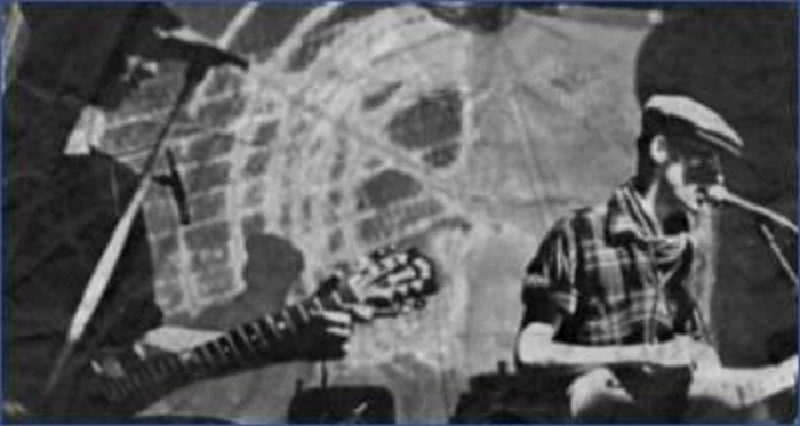
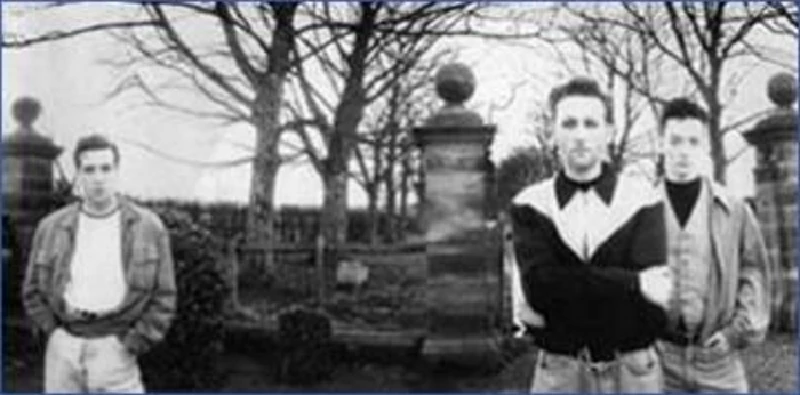
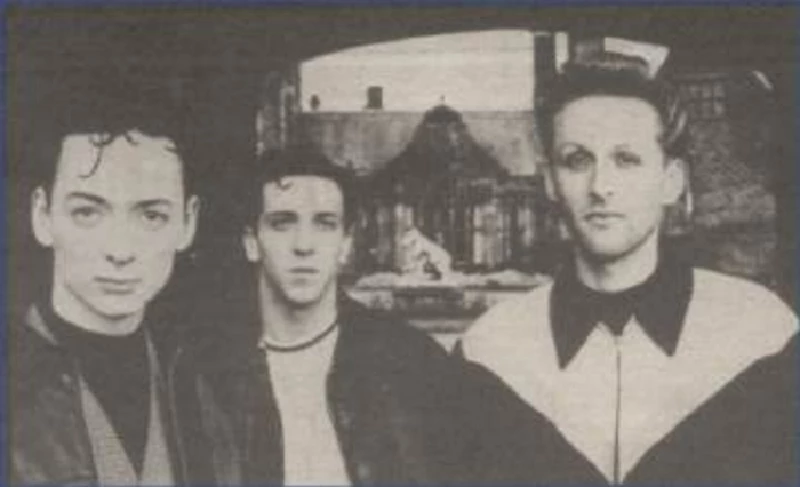
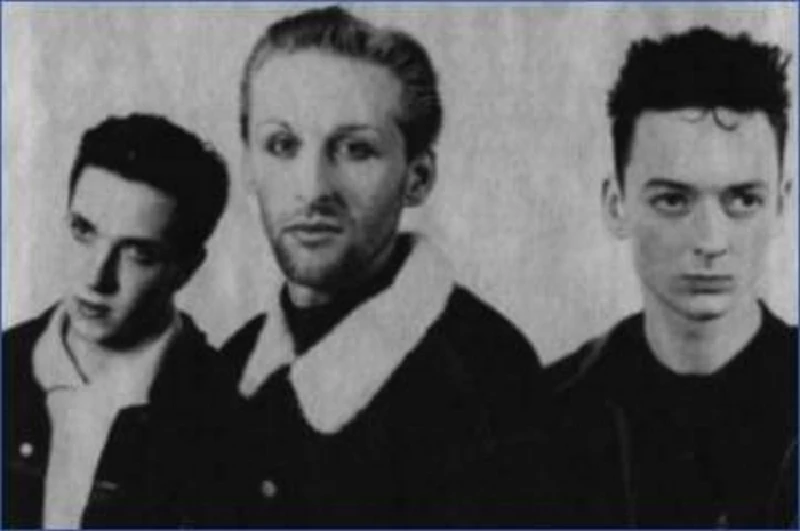
interviews |
|
Interview (2011) |
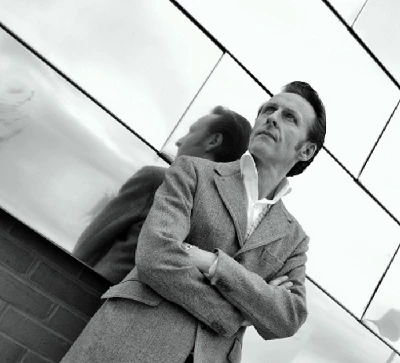
|
| John Clarkson speaks to Paul Simpson from Liverpool post-punk band the Wild Swans about his group's first album in twenty two years, 'The Coldest Winter For a Hundred Years' |
| Interview (2009) |
live reviews |
|
Static Gallery, Liverpool, 23/7/2009 |
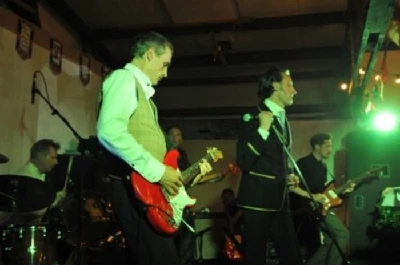
|
| Guest writer Alan O'Hare watches the reformed Wild Swans make a stunning return to the stage after a twenty one year absence at the first night of a two evening residency at the Static Gallery in their home town of Liverpool |
reviews |
|
Liquid Mercury (2009) |
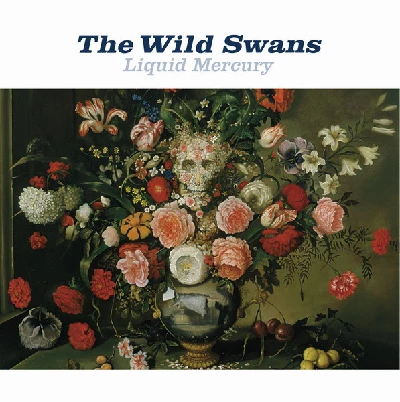
|
| Evocative and reflective new single from reformed Liverpool-based group, the Wild Swans |
| English Electric Lightning (2009) |
most viewed articles
current edition
Peter Doherty - Blackheath Halls, Blackheath and Palace Halls, Watford, 18/3/2025 and 21/3/2025Armory Show - Interview with Richard Jobson
Liz Mitchell - Interview
Lauren Mayberry - Photoscapes
Deb Googe and Cara Tivey - Interview
Max Bianco and the BlueHearts - Troubadour, London, 29/3/2025
Sukie Smith - Interview
Garfunkel and Garfunkel Jr. - Interview
Maarten Schiethart - Vinyl Stories
Clive Langer - Interview
previous editions
Heavenly - P.U.N.K. Girl EPBoomtown Rats - Ten Songs That Made Me Love....
Trudie Myerscough-Harris - Interview
Doris Brendel - Interview
Oasis - Oasis, Earl's Court, London, 1995
Beautiful South - Ten Songs That Made Me Love...
Dwina Gibb - Interview
Pulp - Ten Songs That Made Me Love...
Kay Russell - Interview with Kay Russell
Sound - Interview with Bi Marshall Part 1
most viewed reviews
current edition
Wings - Venus and MarsKate Daisy Grant and Nick Pynn - Songs For The Trees
Neil Campbell - The Turnaround
Martin Carthy - Tranform Me Then Into a Fish
MIEN - Miien
Circa Waves - Death and Love Pt. 1
British IBM - Things Change
Valerie June - Owls, Omens and Oracles
Sofia Hardig - Lighthouse of Glass
Tate McRae - So Close to What
related articles |
|
Paul Simpson: Interview (2017 |
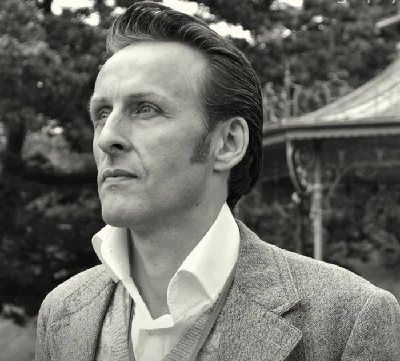
|
| Paul Simpson talks to John Clarkson about his forthcoming memoirs 'Incandescent', his post-punk group The Wild Swans and his memories of late 70's/early 80's Liverpool and its bands |
Pennyblackmusic Regular Contributors
Adrian Janes
Amanda J. Window
Andrew Twambley
Anthony Dhanendran
Benjamin Howarth
Cila Warncke
Daniel Cressey
Darren Aston
Dastardly
Dave Goodwin
Denzil Watson
Dominic B. Simpson
Eoghan Lyng
Fiona Hutchings
Harry Sherriff
Helen Tipping
Jamie Rowland
John Clarkson
Julie Cruickshank
Kimberly Bright
Lisa Torem
Maarten Schiethart